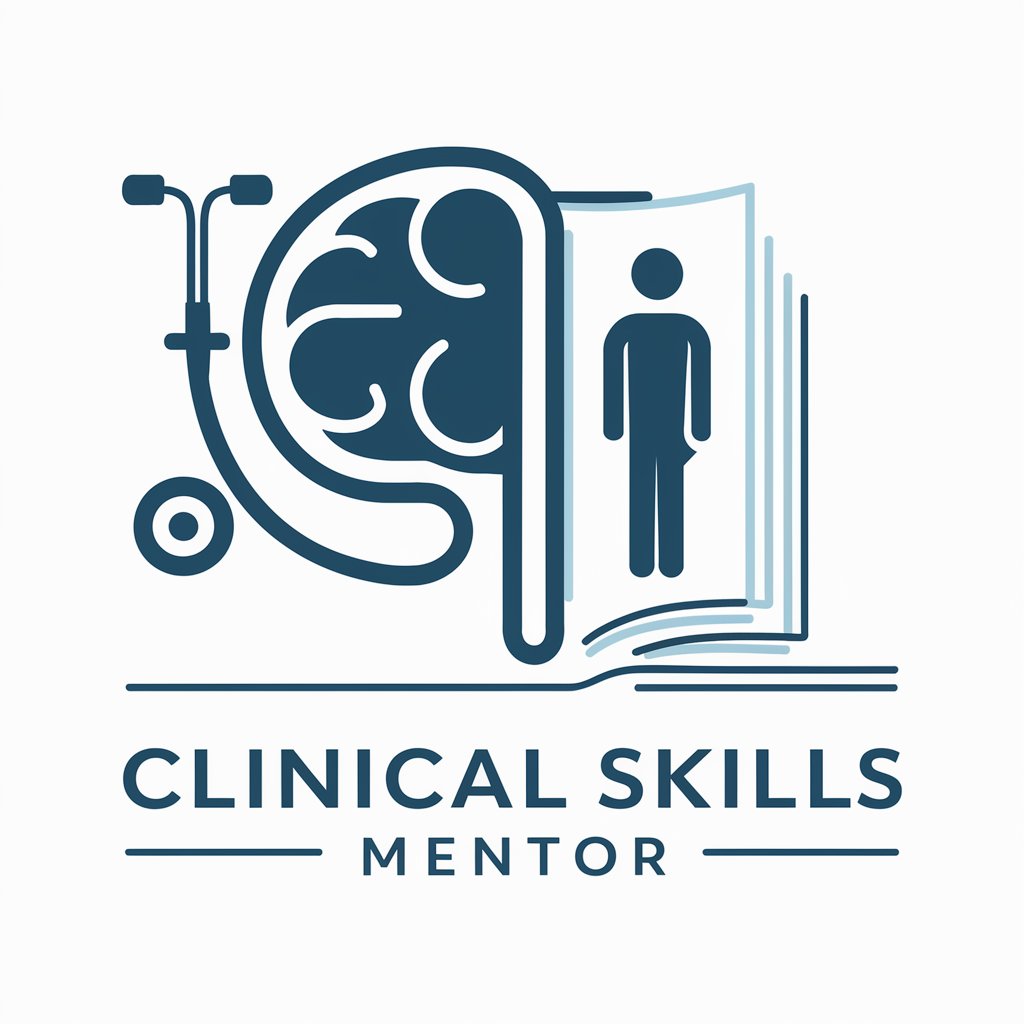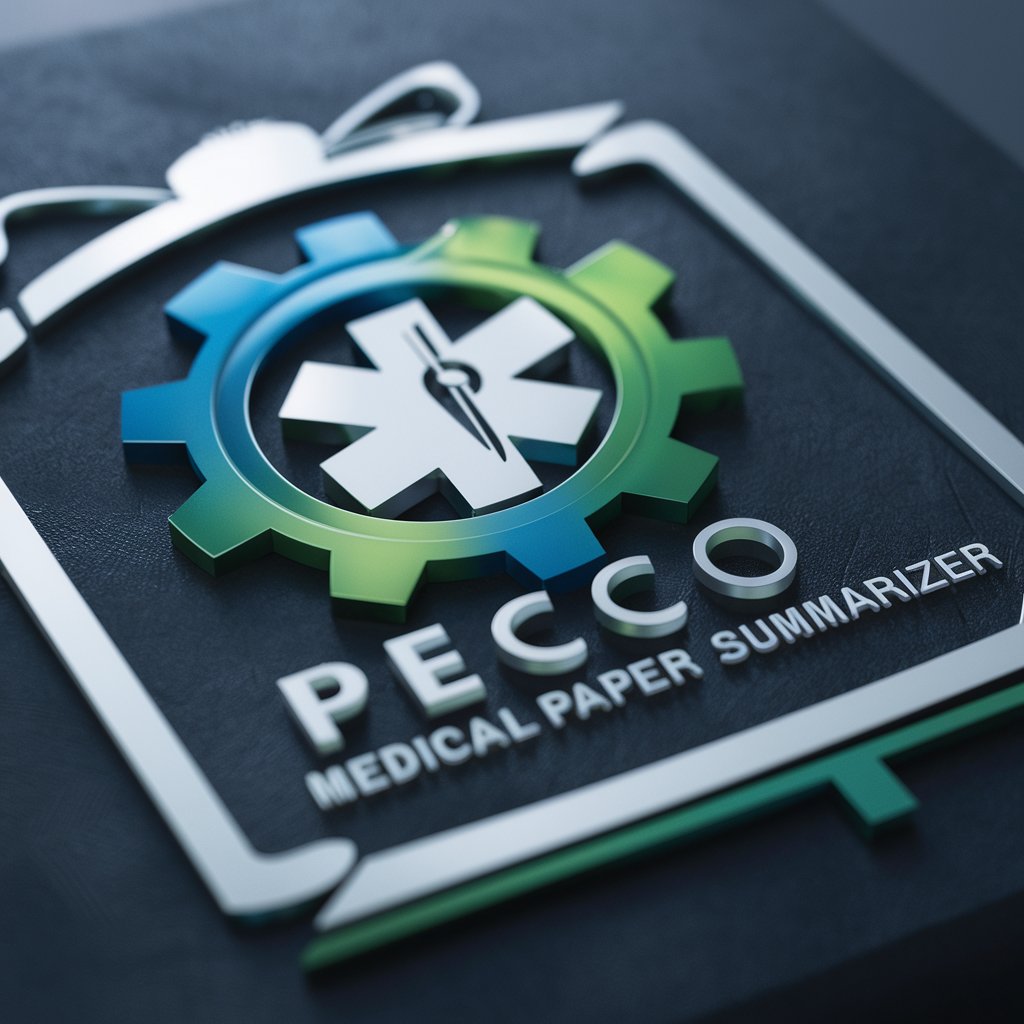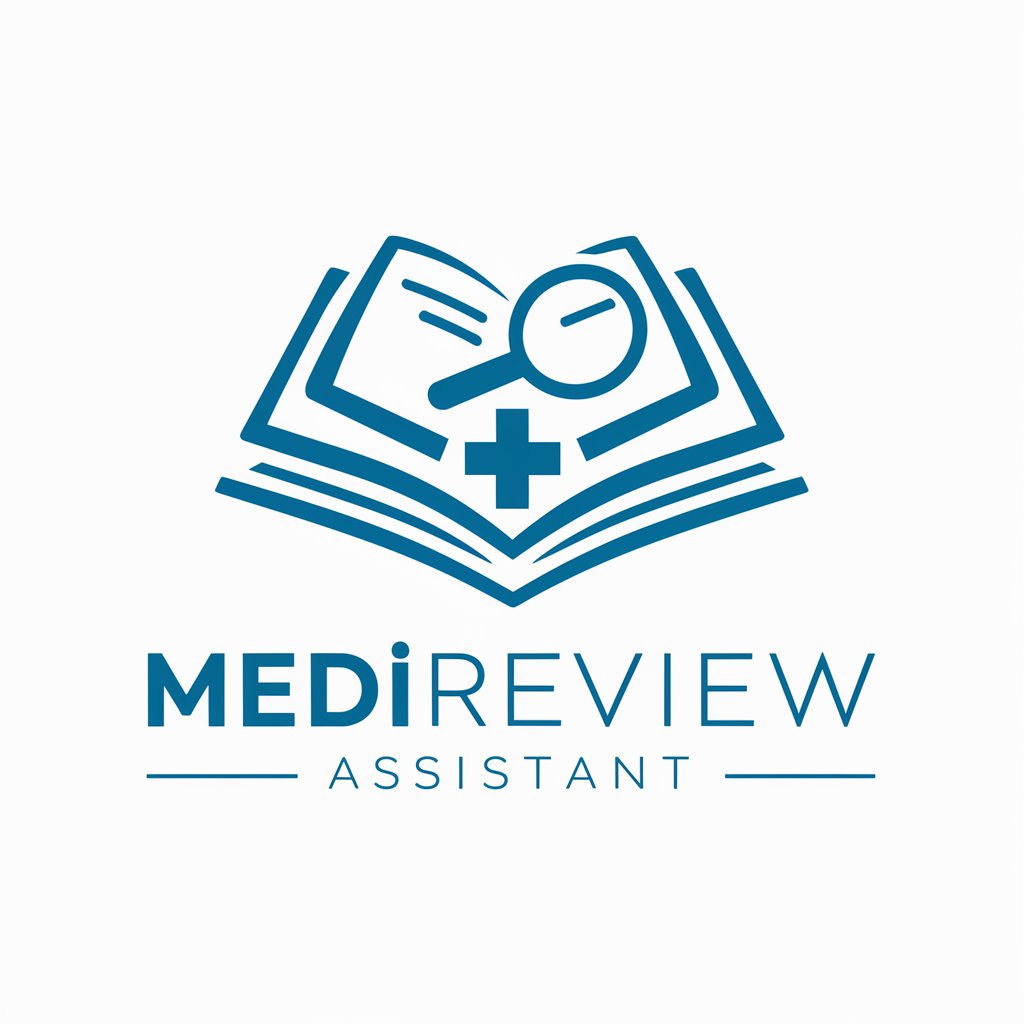4 GPTs for Evidence Medicine Powered by AI for Free of 2026
AI GPTs for Evidence Medicine are advanced artificial intelligence tools designed to cater specifically to the field of evidence-based medicine. These tools, based on Generative Pre-trained Transformers (GPTs), are tailored to understand, generate, and process language in a way that supports medical research, diagnosis, treatment planning, and healthcare policy-making. They leverage vast amounts of medical literature and data to provide insights, summaries, and recommendations grounded in the latest evidence, thus playing a crucial role in enhancing decision-making and research in the medical field.
Top 4 GPTs for Evidence Medicine are: Clinical Skills Mentor,PECO Medical Paper Summarizer,ORBITA-2 trial,MediReview Assistant
Clinical Skills Mentor
Enhancing Clinical Acumen with AI Insight

PECO Medical Paper Summarizer
AI-driven Clinical Research Summaries

ORBITA-2 trial
Deciphering PCI Impact with AI

MediReview Assistant
Empowering Research with AI-Powered Reviews

Key Attributes of AI GPTs in Evidence Medicine
AI GPTs for Evidence Medicine come equipped with a range of unique features including natural language processing capabilities that understand complex medical terminology, adaptive learning that evolves with ongoing medical research, and the ability to analyze and summarize large volumes of medical literature. Special features also encompass technical support for integrating with healthcare databases, web searching for the latest studies, image creation for educational purposes, and data analysis tools for research and clinical trials. Their adaptability ranges from providing simple explanatory responses to complex meta-analyses, making them invaluable across various medical research and practice scenarios.
Who Benefits from Evidence Medicine AI GPTs
The primary beneficiaries of AI GPTs tools for Evidence Medicine include healthcare professionals, medical researchers, policy makers, and students in the medical field. These tools are designed to be accessible to novices without coding skills, offering straightforward interfaces and guidance. Simultaneously, they offer extensive customization options for developers and professionals with programming expertise, allowing for tailored solutions that fit specific research needs or integrate into existing medical systems and workflows.
Try Our other AI GPTs tools for Free
Detox Assistance
Discover how AI GPTs for Detox Assistance can revolutionize the path to recovery, offering personalized, adaptive support for a healthier lifestyle.
Rehab Matching
Discover how AI GPTs for Rehab Matching revolutionize the process of finding the right rehabilitation services with tailored, data-driven recommendations.
Anonymous Support
Discover how AI GPTs for Anonymous Support revolutionize confidential assistance with advanced, empathetic responses tailored to your needs, all while ensuring your privacy.
Edgy Humor
Discover how AI GPTs for Edgy Humor are revolutionizing humor content creation, offering tailored, edgy jokes, and stories with advanced customization and integration capabilities.
Informal Aid
Explore AI GPTs tailored for Informal Aid: versatile tools designed for real-time support, multilingual assistance, and customizable solutions in informal aid contexts.
Adaptive Insights
Discover how AI GPTs for Adaptive Insights can transform your data analysis and decision-making processes with tailored, real-time insights and predictions.
Further Exploration into AI GPTs for Evidence-Based Medicine
AI GPTs for Evidence Medicine represent a cutting-edge integration of AI into healthcare, offering solutions that enhance research, education, and clinical decision-making. Their user-friendly interfaces and ability to integrate with existing medical systems make them an invaluable tool for advancing evidence-based practice. Moreover, their ongoing learning capabilities ensure they remain at the forefront of medical research and practice.
Frequently Asked Questions
What are AI GPTs for Evidence Medicine?
AI GPTs for Evidence Medicine are AI tools designed to support the medical field by providing evidence-based insights and analyses using advanced language models.
How do AI GPTs in Evidence Medicine work?
They process and analyze medical literature and data using natural language processing, offering insights, summaries, and evidence-based recommendations.
Who can use these AI GPT tools?
They are accessible to healthcare professionals, researchers, policy makers, and students, with interfaces for both novices and experts.
Can AI GPTs generate medical literature reviews?
Yes, they can analyze and summarize vast amounts of medical literature to support research and decision-making.
Are these tools customizable?
Yes, they offer extensive customization for those with coding skills, allowing integration into existing systems or for creating tailored solutions.
How do AI GPTs stay updated with new medical research?
They continuously learn from new data and research, ensuring their recommendations are based on the latest evidence.
Can AI GPTs assist in clinical decision-making?
While they provide evidence-based information, the final clinical decisions should always be made by qualified healthcare professionals.
Are AI GPTs for Evidence Medicine secure and confidential?
Yes, they are designed with data security and confidentiality in mind, crucial for handling sensitive medical information.